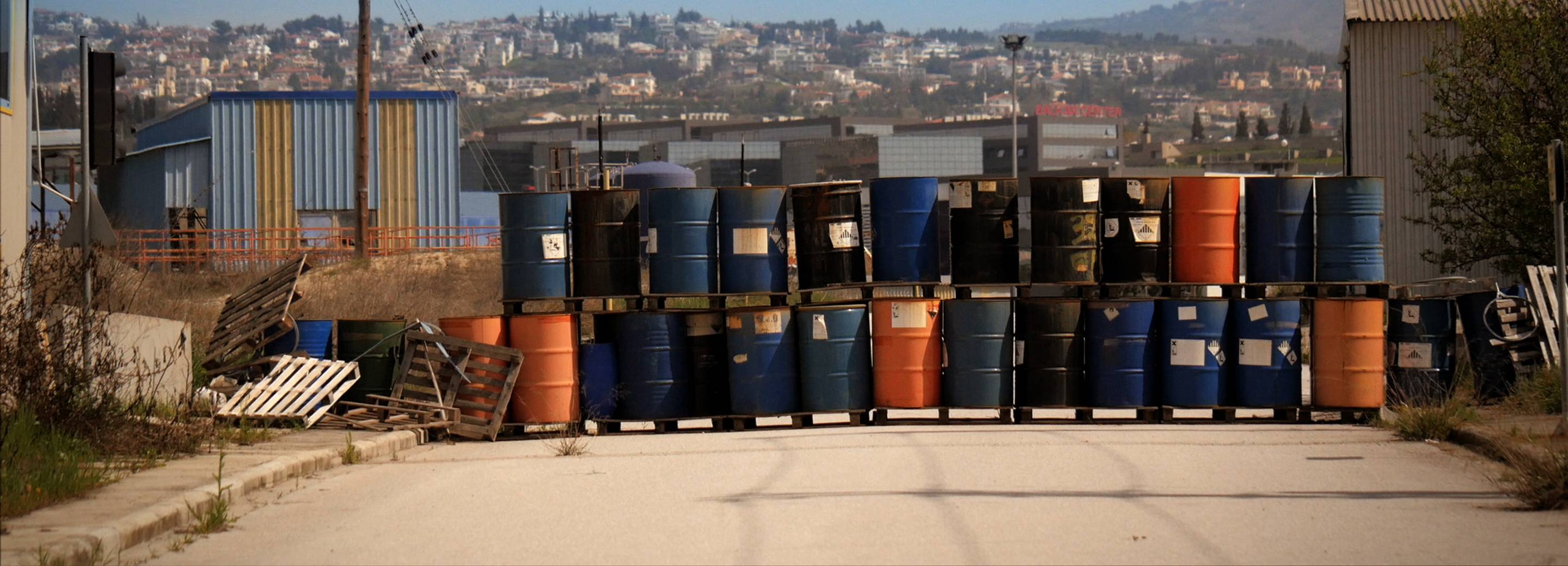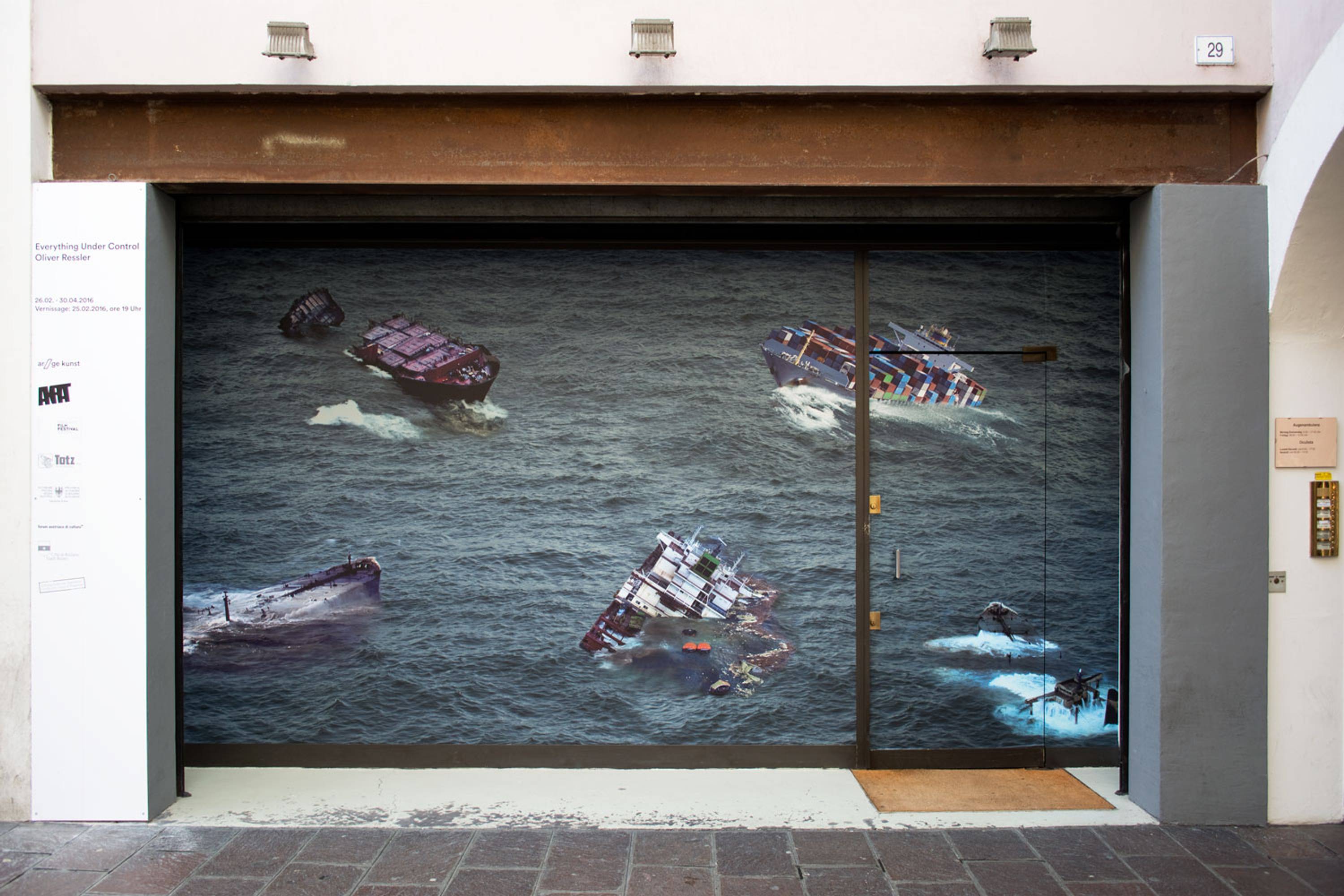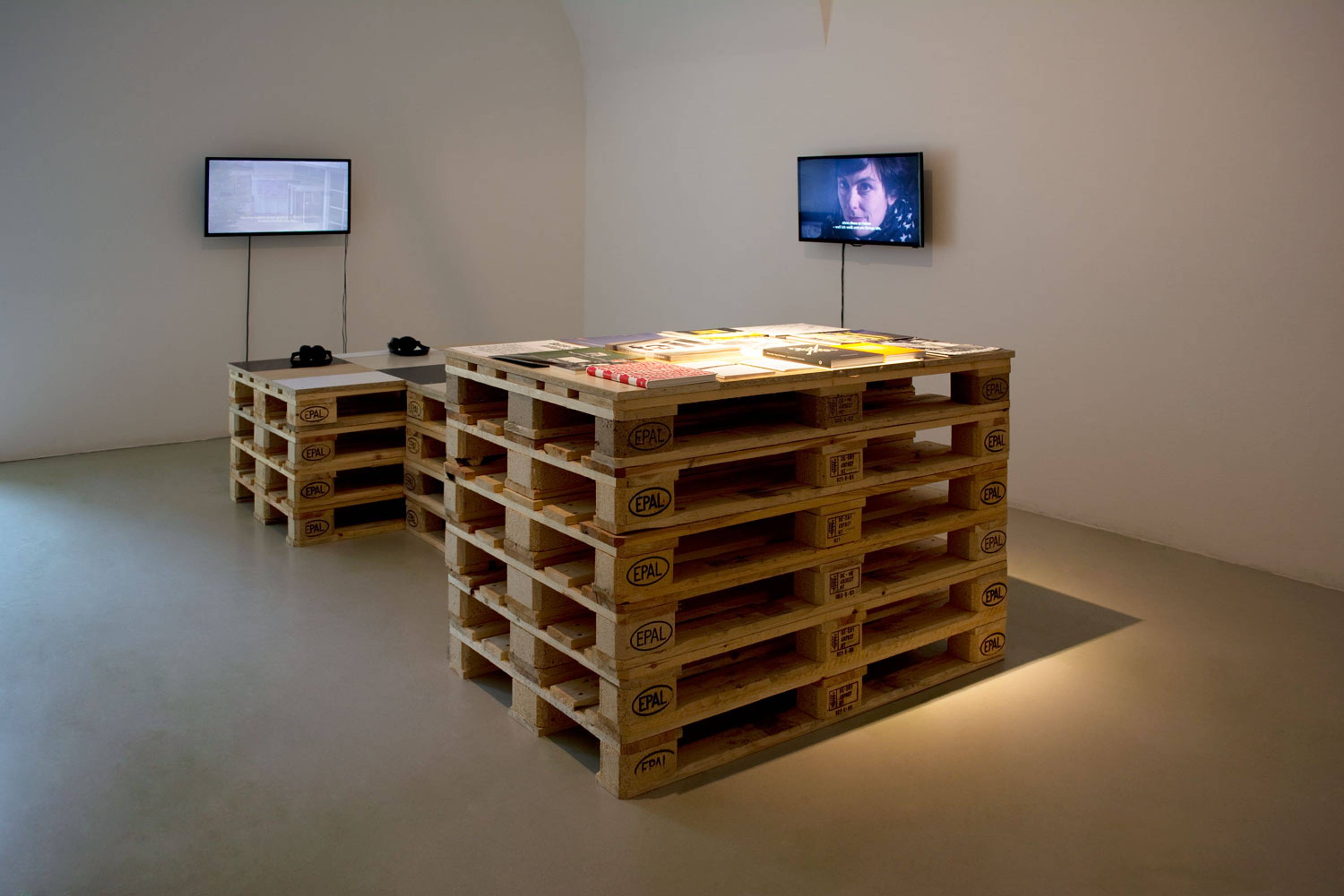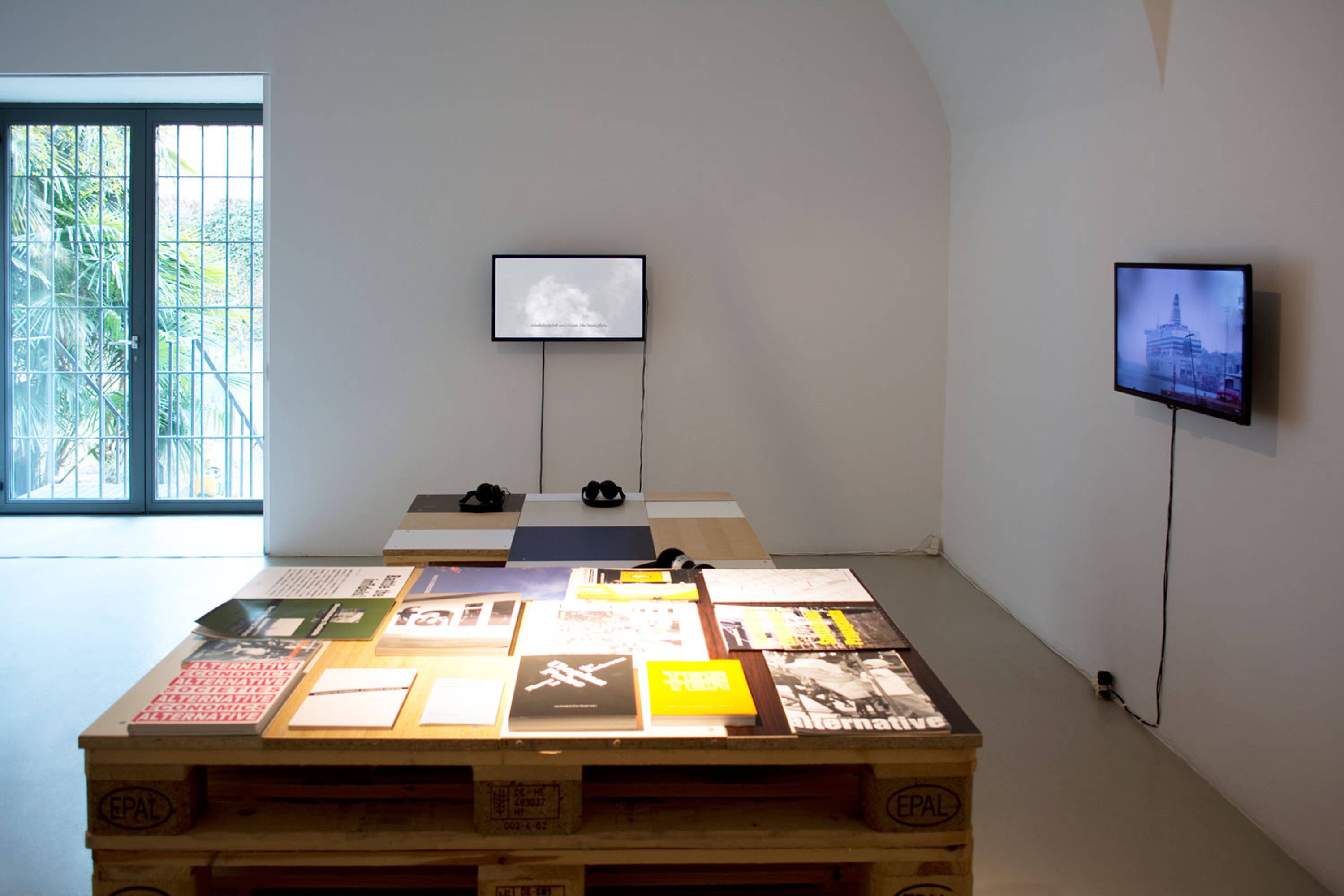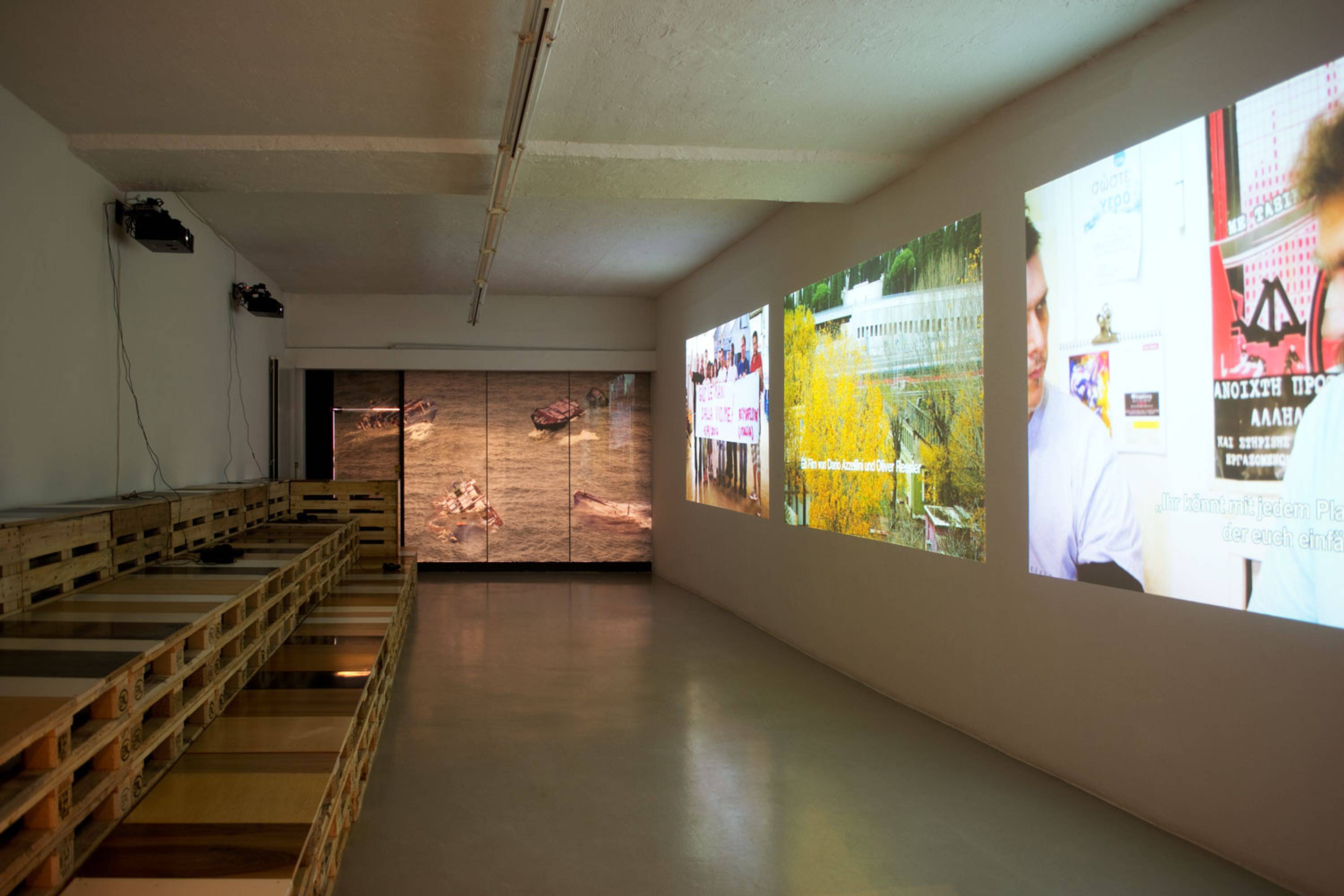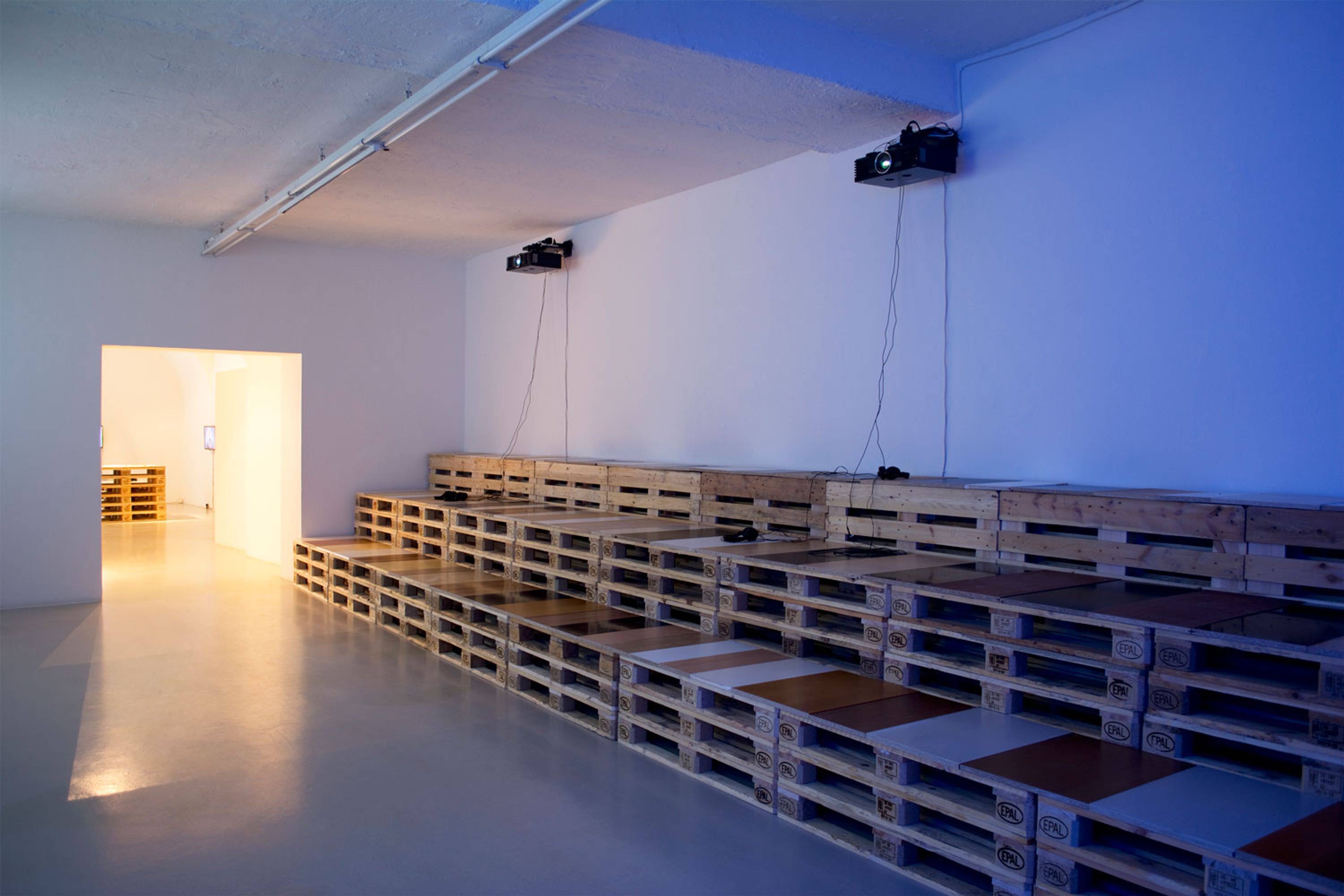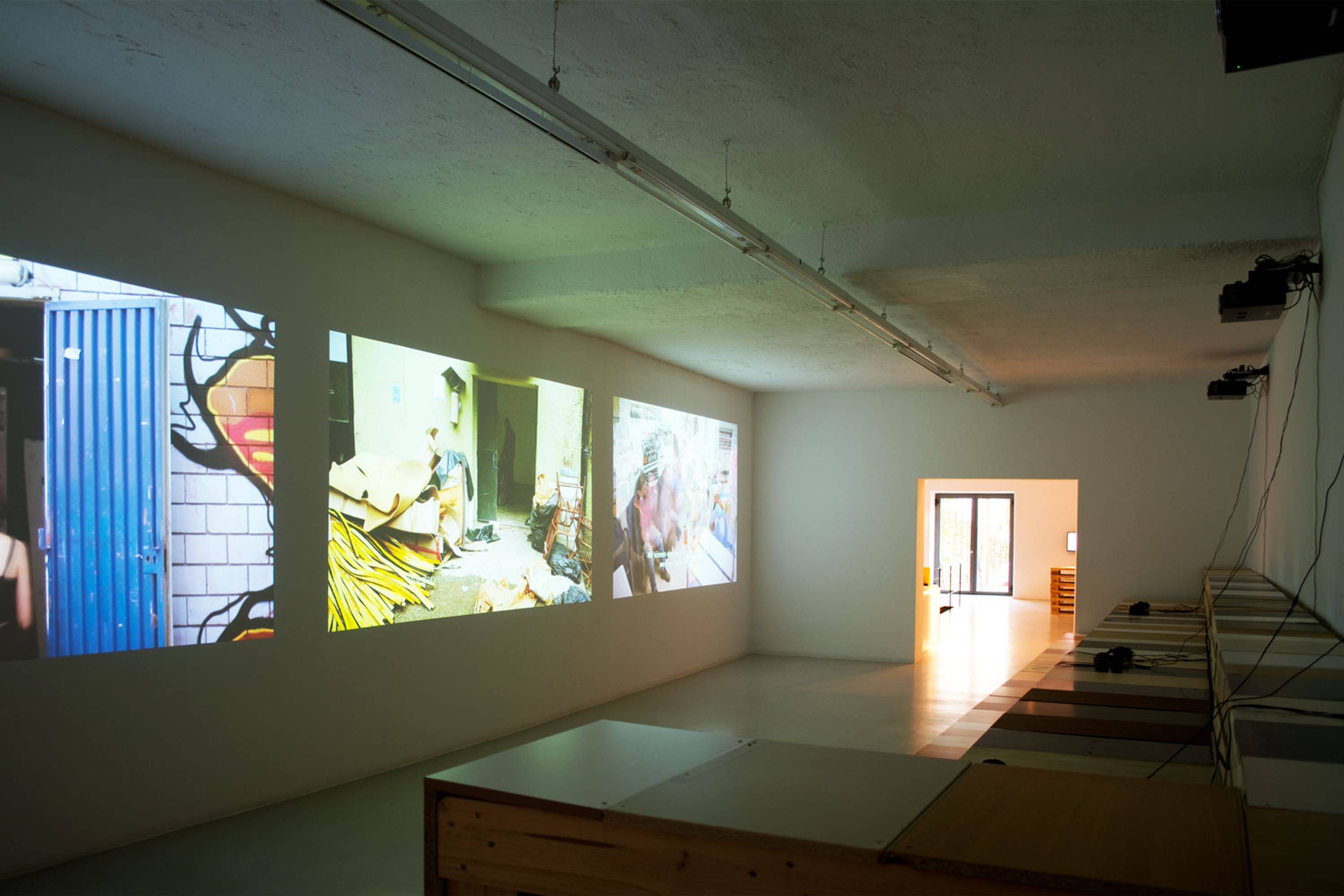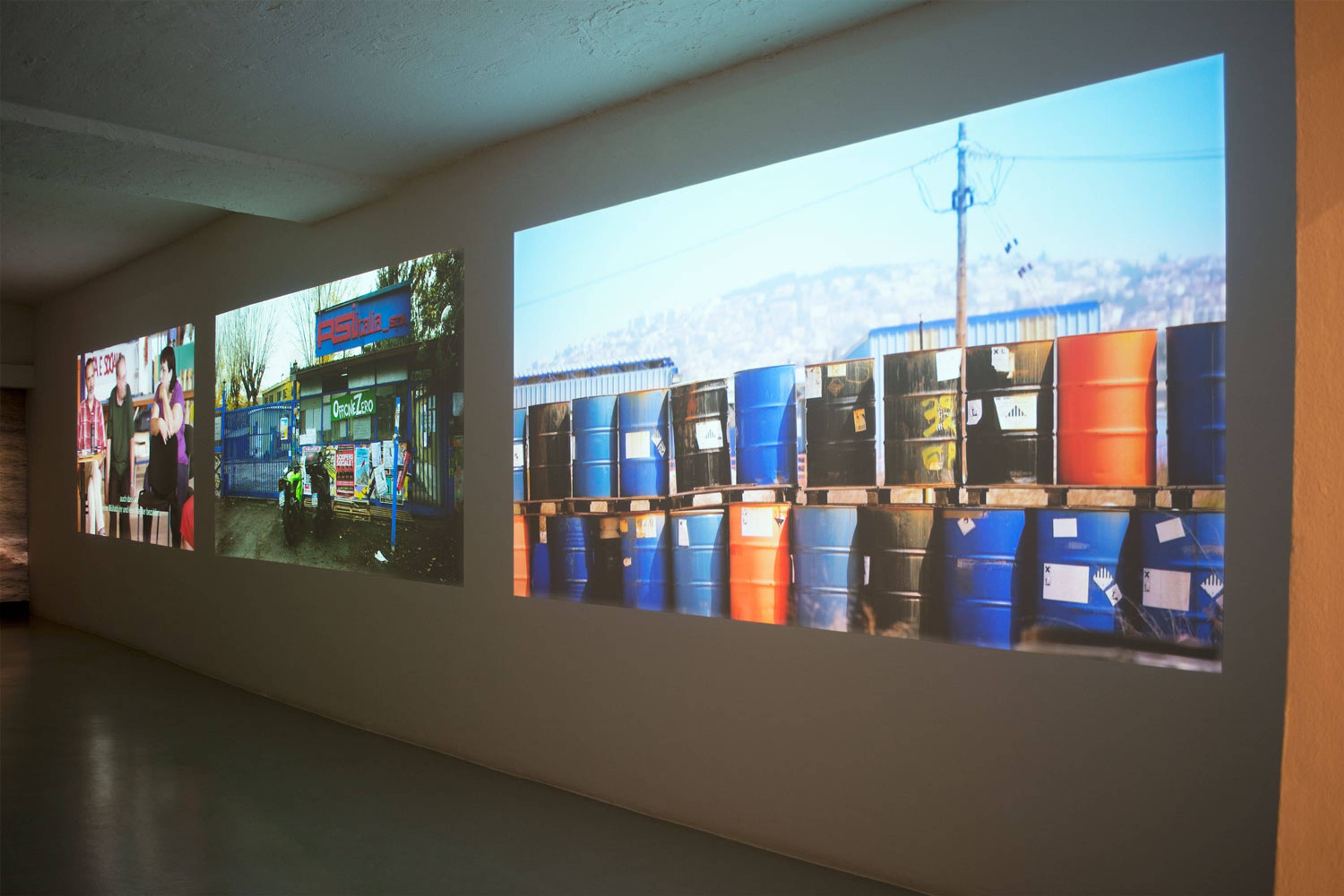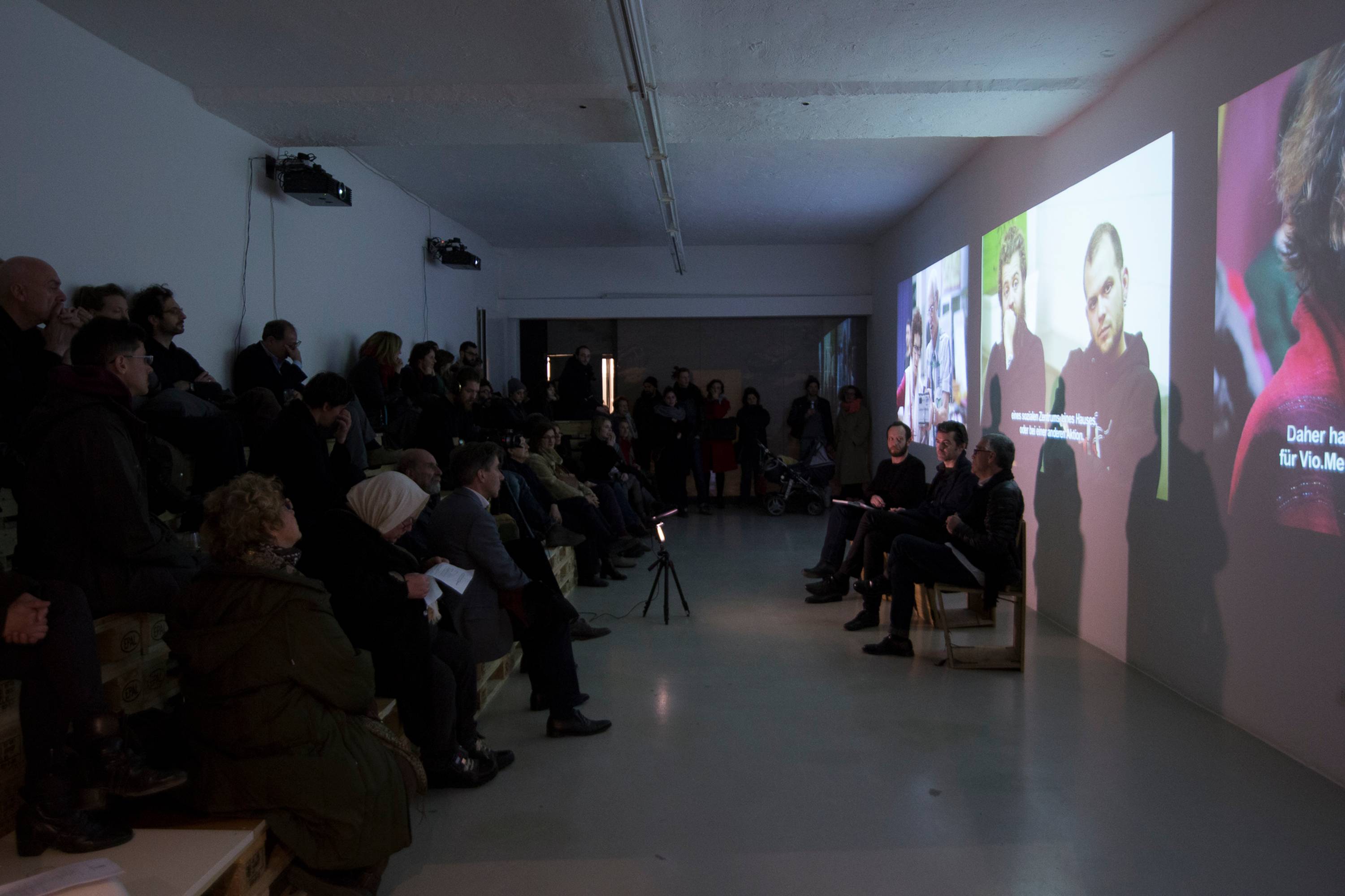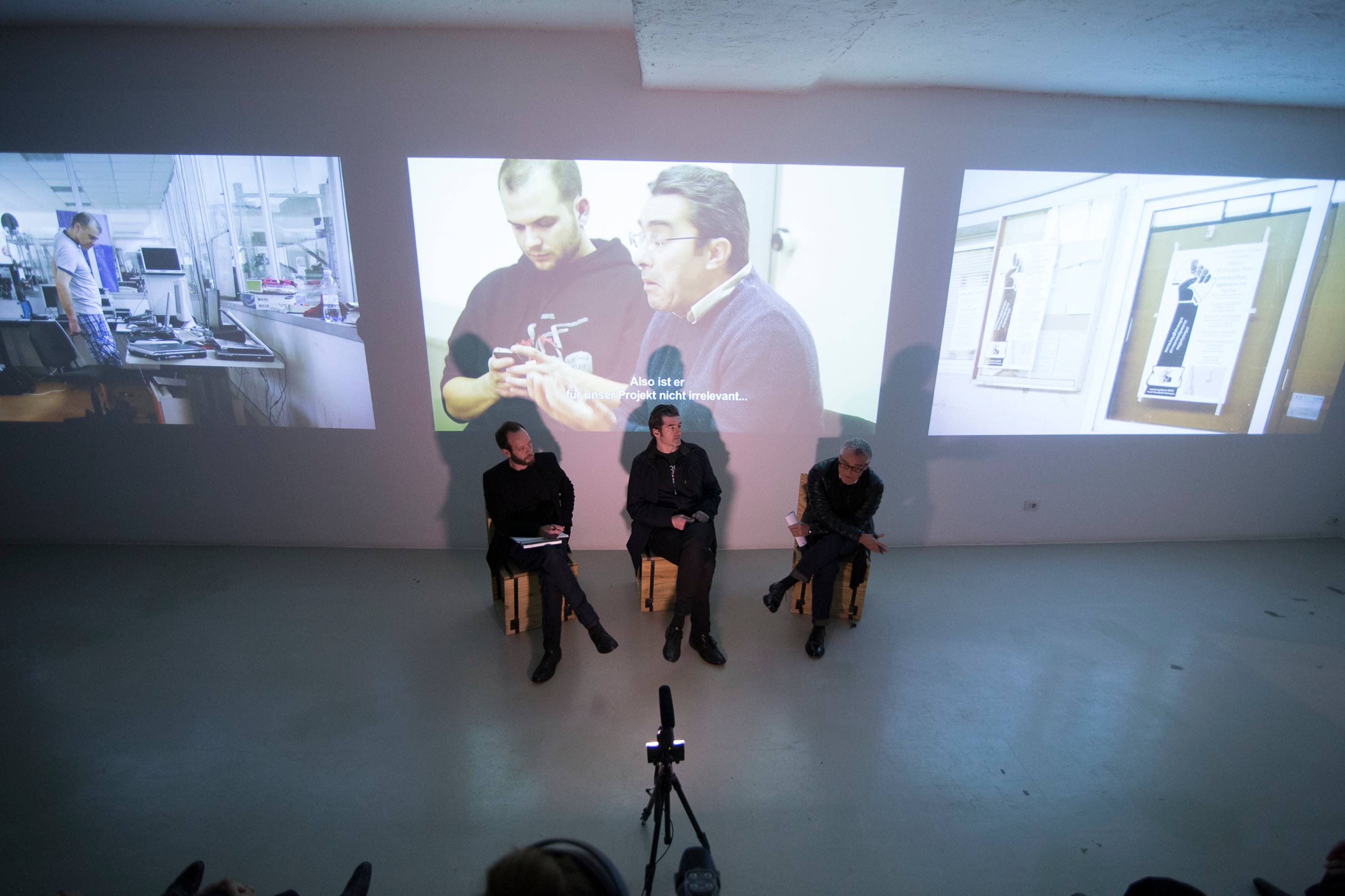Everything Under Control Oliver Ressler
Opening and Artist’s Talk
25.02.2016, 7 pm
Oliver Ressler with Marco Scotini (curator and director at NABA – Nuova Accademia delle Belle Arti di Milano)
Click here for the video
Display in collaboration with Akrat, co-operative, Bolzano/Bozen.
ar/ge kunst is pleased to present Everything Under Control, the first solo exhibition at an Italian institution by Austrian artist Oliver Ressler.
Focusing mainly on Ressler’s practice as a filmmaker, this exhibition gathers new and recent works from various strands of research conducted over the course of his career. The display and installation, conceived as a unique path through the venue, underlines how these strands are deeply intertwined and part of Ressler’s continuous engagement with a wider idea of social justice.
Central to the exhibition is the opacity of language with which capitalism operates, communicates and tends to conceal the fact that economic, environmental and humanitarian crises in the southern hemisphere are co-dependent sides of a narrative which presents the wealth of the northern hemisphere as victimless and sustainable.
A large-scale photo-based image of the sea showing sinking vessels and container ships obscures the window of ar/ge kunst, addressing the street outside the venue and introducing the broader economic discussion within. Reading this image in relation to the title of the exhibition, Everything Under Control, might lead to the assumption that its intentions are ironic. After all, an economic system that rests on global trade but produces ecological and social catastrophes on a daily basis should really be described as ‘out of control’. However, in the context of the central work in the exhibition – a three-channel video installation entitled Occupy, Resist, Produce (2014–15) – the word ‘control’ actually implies ‘control by the workers’. This latest, on-going work, for which Ressler has been collaborating with Dario Azzellini, documents factories in Milan, Rome and Thessaloniki which, having been abandoned by their legal owners, were occupied by the workers between 2011 and 2013. Each film consists of a discussion with the workers and records their assemblies. The voices of the protagonists elucidate the complex and collective decision-making processes involved in converting these factories from sites for the production of goods into sites for the ‘production’ of new social and economic models, a process entailing the search for a language that could be shared with neighbours, locals and migrant communities whose struggles paralleled theirs.
The Visible and The Invisible (2014) and The Right of Passage (with Zanny Begg, 2013) are two films that take different approaches to dealing with movement across borders, (the denial of) access and plundering. The first looks at Switzerland’s role as a global headquarters for barely visible transnational corporations trading in raw materials usually extracted from the southern hemisphere. The Right of Passage focuses on struggles to obtain citizenship while also questioning the inherently exclusive nature of citizenship. Interviews with Sandro Mezzadra, Antonio Negri and Ariella Azoulay form the starting point for a discussion with a group of people living ‘without papers’ in Barcelona.
The exhibition display has been realized by the Akrat co-operative in dialogue with ar/ge kunst and the artist.
Everything Under Control is part of a cycle of solo exhibitions by Oliver Ressler at four European institutions: Lentos Kunstmuseum (Linz), n.b.k. – Neue Berliner Kunstverein (Berlin), CAAC – Centro Andaluz de Arte Contemporáneo (Seville) and ar/ge kunst (Bolzano), each presenting different aspects of the artist’s work. The book Cartographies of Protest is published as a collaboration of the four institutions.
Book:
Oliver Ressler, Cartographies of Protest, Verlag für Moderne Kunst, 2014.
Essays by TJ Demos, Katarzyna Kosmala, Suzana Milevska and Marco Scotini. Edited by Juan Antonio Álvarez Reyes, Marius Babias, Emanuele Guidi, Stella Rollig. In German and English, 160 pp.
With the kind support of:
Provincia Autonoma di Bolzano, Ripartizione Cultura
Forum Austriaco di Cultura, Milano
Comune di Bolzano, Ripartizione Cultura
Segheria Tatz Luis, Appiano
In collaboration with:
AKRAT, Cooperativa Sociale Bolzano
Bolzano Film Festival Bozen
